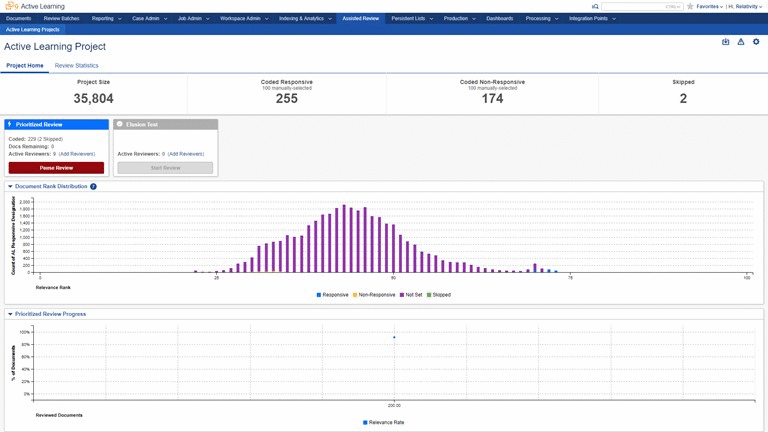As remote working has become essential during these unprecedented times, we are all relying on technology more than ever before. At Altlaw, our project managers have been working from home and leveraging technology to run projects as they would normally be run. Below is an overview case study ofa recent project that had pressing deadlines but without access to the resources, we would normally utilise.
Custodians and devices had already been identified and marked for collection prior to the Covid-19 shutdown. The data from these devices was collected remotely by Altlaw forensic team and transferred electronically via SFTP.
The resulting data were processed as per normal and a series of filters were applied to the data. The resulting dataset was then ready for review.
The remaining dataset consisted of around 220,000 documents.
With the option of a large team of reviewers not suitable, technology-assisted review was deemed to be the best available solution. In this instance, the solution used was RelativityOne’s CAL (Continuous Active Learning).
The client applied a team of three lawyers to begin designating documents as Relevant/Not Relevant.
Documents were served up to the reviewers based on a ranking system – where the system learnt from the decisions previously made to serve up what it felt were the most relevant documents.
The system doesn’t just apply a binary decision about Relevant / Not Relevant, it also gives a ranking on how confident the system is with its’ decision. These levels of confidence will initially be quite mixed – some with a high level of certainty and some low.
This is illustrated in the distribution model well below.





